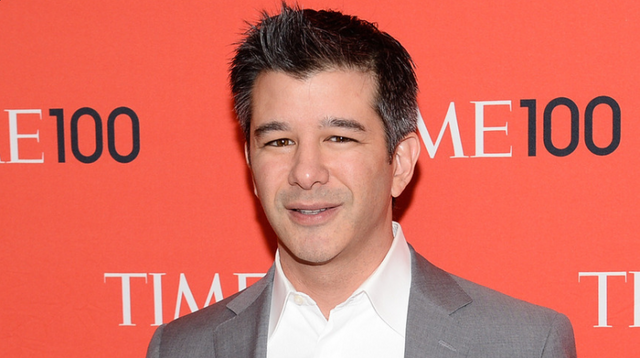
Previous Uber CEO Travis Kalanick was stood up to in court with old messages that recommended he was ready to go to any length to outperform a Google self-driving auto venture.
Kalanick was on the testimony box to answer claims that he collaborated with previous Google build Anthony Levandowski to rip off self-driving auto innovation now possessed by Waymo, a Google spinoff.
In one February 2016 content, Kalanick concurred with a remark by Levandowski that "second place is first looser (sic)." Another content incorporated a connection to a video cut from the 1987 film "Money Street" that is prominently known as the "Insatiability is great" discourse. In a later content, Levandowski told Kalanick, "we do need to thoroughly consider the procedure to take every one of the easy routes we can discover."
Waymo affirms that Levandowski heisted eight prized formulas from Google before leaving the organization in January 2016. He established his own particular startup, Otto, which Uber purchased a couple of months after the fact for $680 million. Kalanick has recognized talking about plans for Otto with Levandowski before he began it, however both he and Uber deny they at any point utilized any Google innovation to construct an armada of self-driving autos.
Kalanick didn't prevent any from securing the trades, despite the fact that he didn't review some of them. He had little to say in regards to the writings, other than his memory that he initially heard his secondary school football mentor say, "second place is first washout."
After a Waymo legal counselor completed the process of barbecuing him, Kalanick swung to a more passionate story under well disposed addressing from a Uber lawyer, giving himself a role as a "younger sibling" sold out by a more seasoned and all the more capable kin. Uber and Google were once accomplices, despite the fact that their advantages later started to impact, souring the business relationship.
Kalanick reviewed that Uber just had a couple of hundred representatives in the late spring of 2013 when Google was consulting to make a noteworthy interest in the ride-hailing administration. He thought it was "cool" when Google sent more than one of its self-driving autos to lift him up and roll over to meet with at that point Google CEO Larry Page (now CEO of Google's corporate parent, Alphabet Inc.)
"It was somewhat similar to younger sibling with huge sibling," Kalanick portrayed his association with Page, 44, who helped to establish Google in a Silicon Valley carport in 1998. That was 11 years before Kalanick, 41, began Uber.
After Google put resources into Uber, Kalanick affirmed, the arrangement was for Uber to in the end send Google's self-driving autos in its ride-hailing administration. "Google was a tremendous accomplice of our own," he said. "It was an awesome relationship."
In any case, things started to change in 2014 when Kalanick heard bits of gossip that Google planned to challenge Uber with its own particular ride-hailing administration. That declaration is bolstered by inward Google reports as of now showed in the trial demonstrating plans to "expend" the greater part of Uber's benefits by 2025.
Kalanick affirmed that he endeavored to contact Page about the bits of gossip, just to be treated with chilling disdain. Persuaded that Google was going its own specific manner, Kalanick chose to begin a self-driving auto division inside Uber by employing top designers having some expertise in apply autonomy from Carnegie-Mellon University in Pittsburgh in 2015. That move frustrated Page, Kalanick affirmed. "Larry was extremely disturbed that we were doing his thing," Kalanick said. Page is required to affirm later in the trial.
Disappointed with the advance that the architects imported from Carnegie-Mellon, Kalanick started searching for other ability in late 2015. That brought forth his exchanges with Levandowski, a regarded master in self-driving vehicles who had turned out to be baffled with the bearing of Google's task.
What occurred next lies at the core of the trial. Waymo claims Kalanick and Levandowski concocted an arrangement for Levandowski to dispatch his startup as a storage facility for Google exchange privileged insights that would later be exchanged to Uber. Kalanick says he basically figured out how to convey Levandowski and his huge information to Uber.
"We contracted Anthony since we thought he was amazingly visionary," said Kalanick, who additionally portrayed Levandowski as "extremely beguiling." Uber ended up terminating Levandowski last May after he declined to give up his established rights against self-implication when addressed about whether he stole exchange privileged insights previously leaving Google.
Kalanick was compelled by financial specialists to advance down as CEO a month after Levandowski's terminating, mostly in view of worries about Waymo's claim. "This (case) makes it not as extraordinary as we thought it was first and foremost," Kalanick said of the arrangement that conveyed Levandowski to Uber.
This post has received a 31.88 % upvote from @fredrikaa thanks to: @rayhankabirs.
Downvoting a post can decrease pending rewards and make it less visible. Common reasons:
Submit